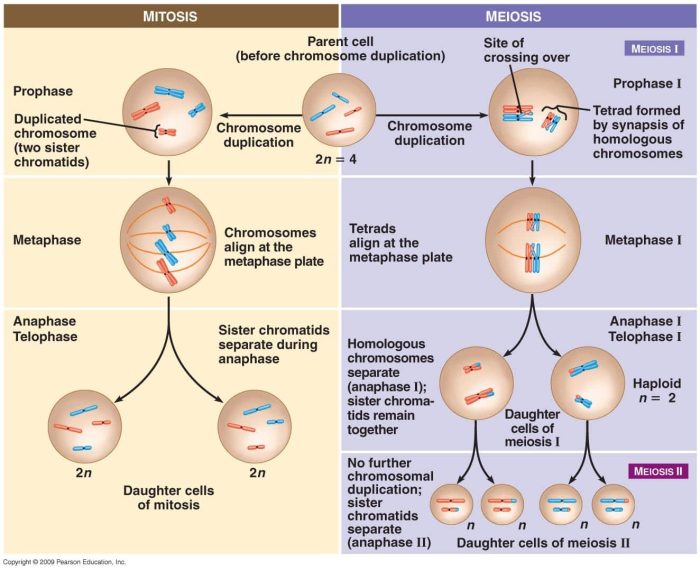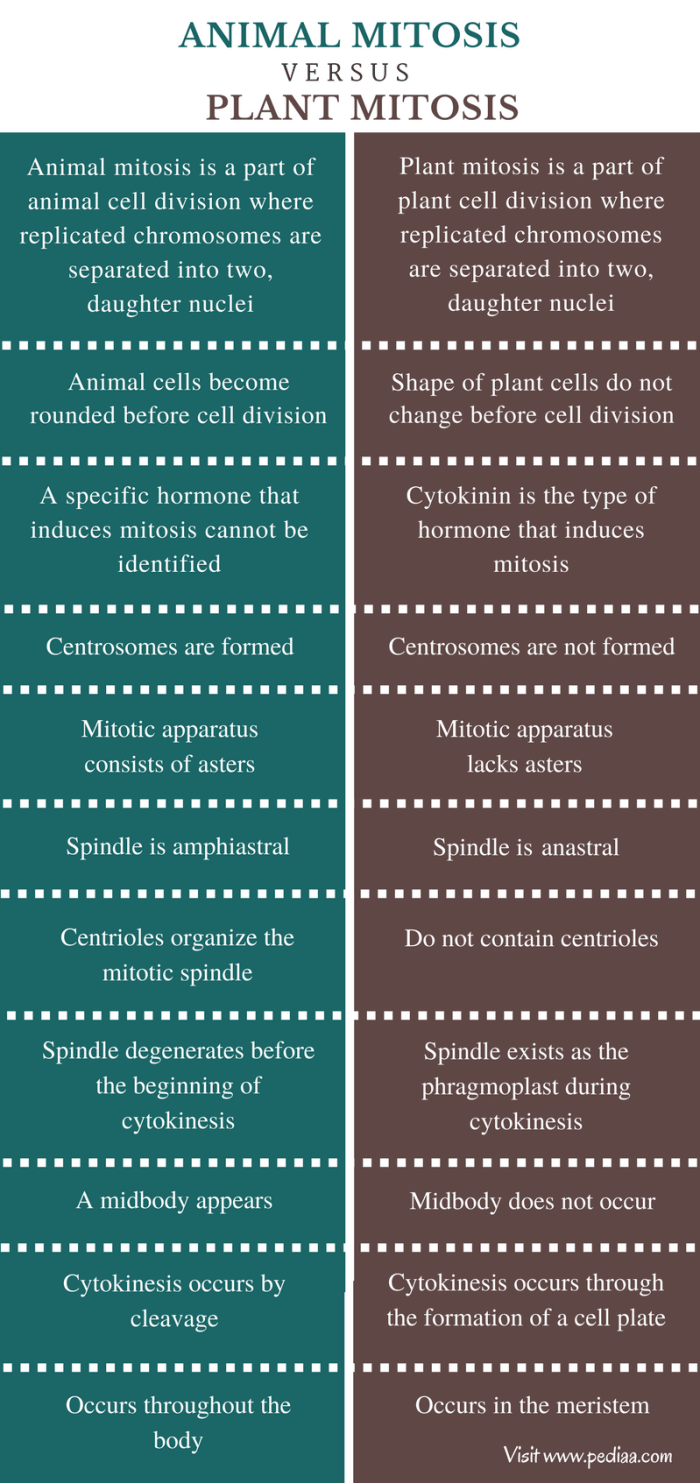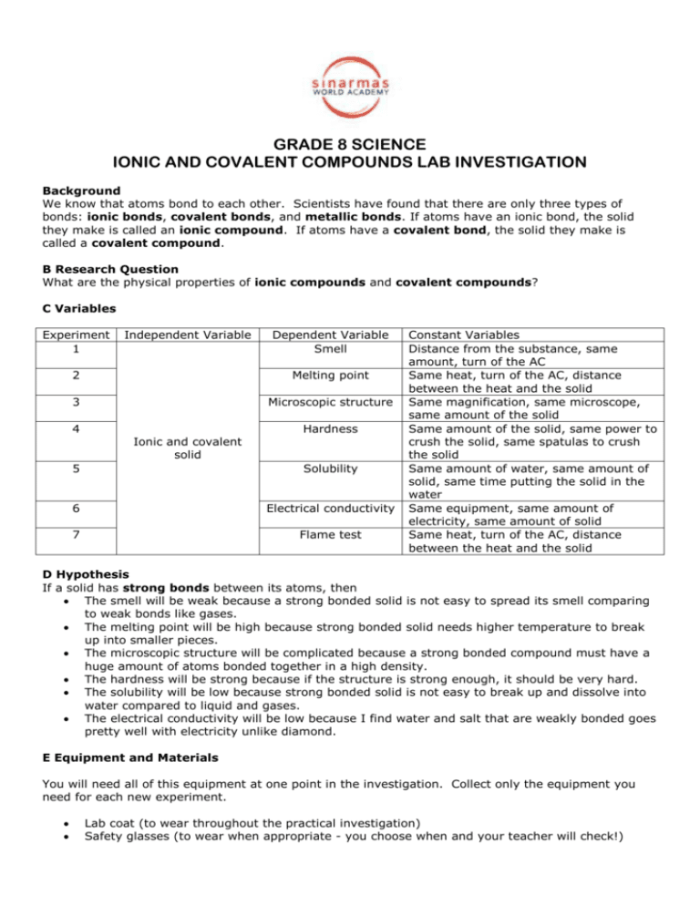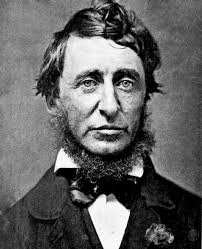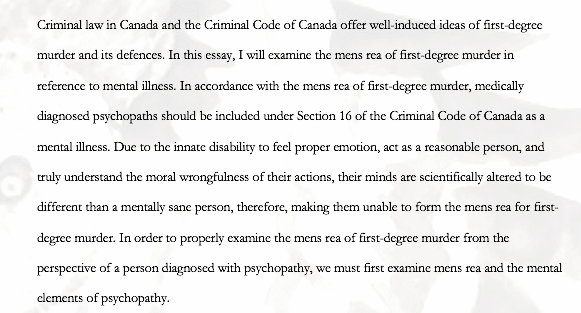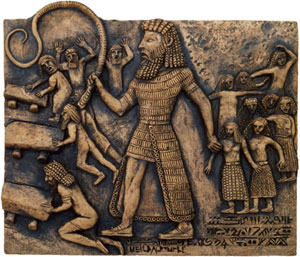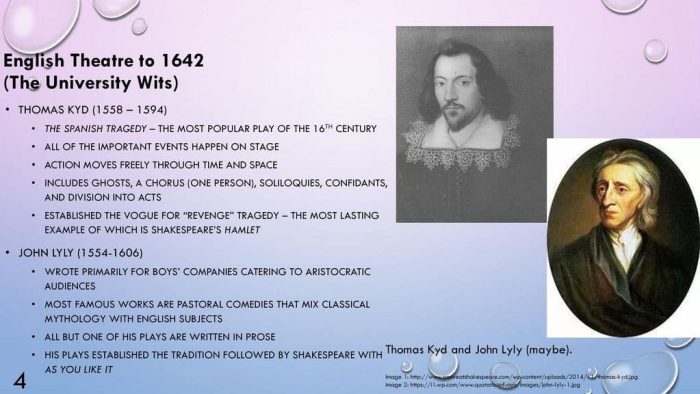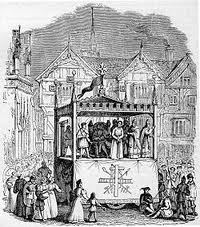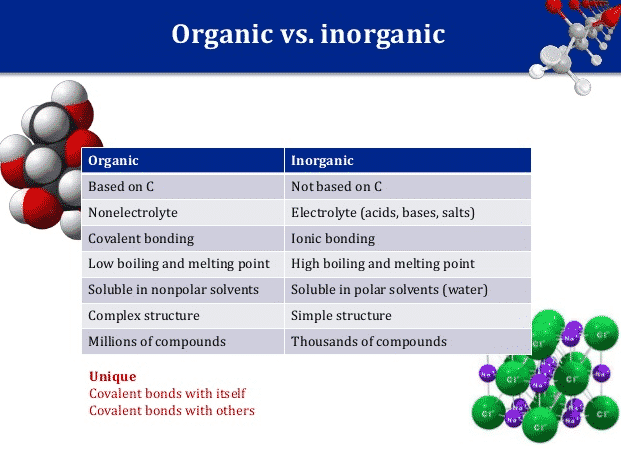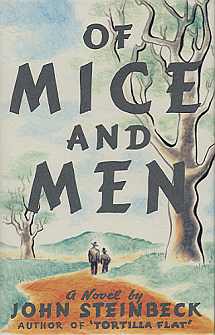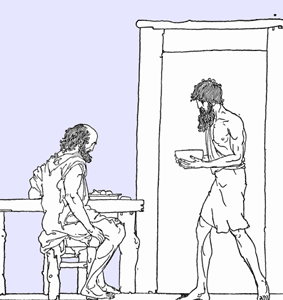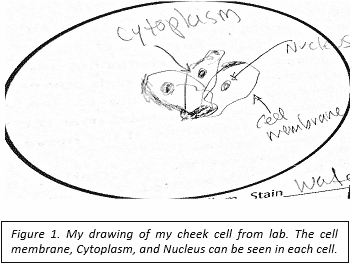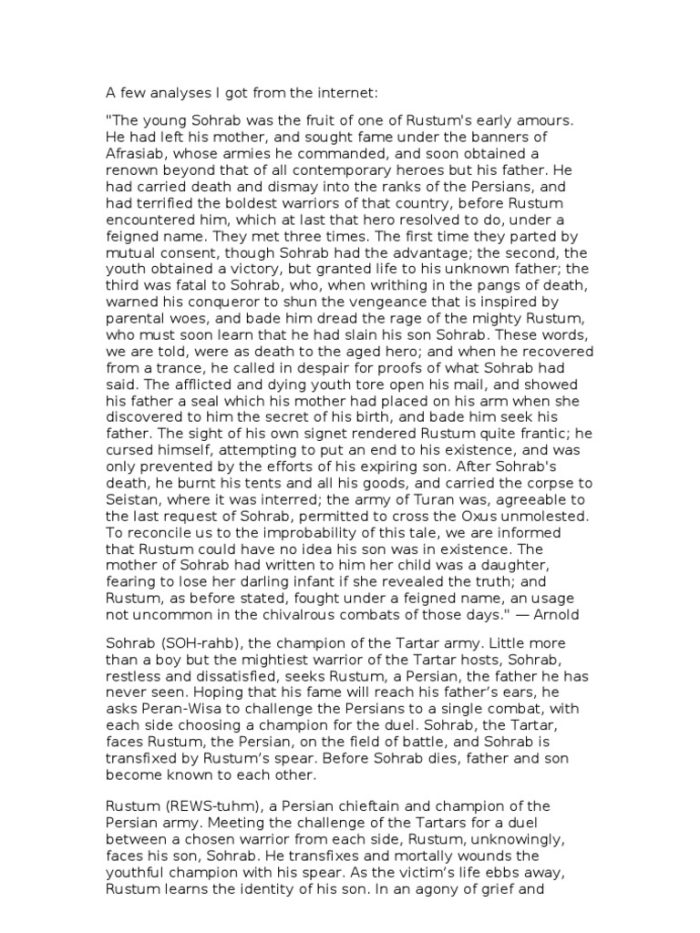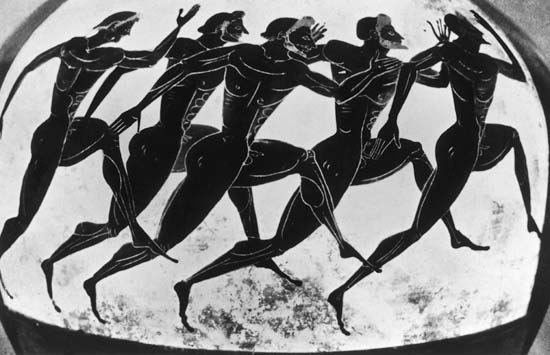William completed his Bachelor of Science and Master of Arts in 2013. He current serves as a lecturer, tutor and freelance writer. In his spare time, he enjoys reading, walking his dog and parasailing.
Article last reviewed: 2022 | St. Rosemary Institution © 2010-2025 | Creative Commons 4.0
Comparisons Meiosis Mitosis Number of divisions Two Divisions. One cell Division. Number and type of daughter cells produced Results in the formation of four haploid sex cells (gametes) produced. Two diploid identical daughter cells for one cell division. Differences in chromosome arrangement In Metaphase 1, the maternal chromosomes pair with the paternal chromosomes at the…
Animal Mitosis Plant Mitosis Have centrioles, centrosomes, and asters No centrioles, centrosomes or aster: No Migration of centrioles. Cell becomes rounded before cell division No change in shape before cell division Cell division induced by multiple hormone to start cell division; no known specific cell division hormone. Cell division induced by specific hormone called…
The poem “Strange Fruit” by Abel Meeropol is very dark and twisted as it paints a mental picture of past events in the southern USA. The poem refers to lynching, which is the act of hanging African Americans, slaves, and other protestors in public venues for a spectacle. Surprisingly, Meeropol was a Russian Jewish immigrant…
Procedure Examine the following chemicals at their various stations: NaCl Ethanol CuSO4 NH4NO3 Kerosene Sulfur CaSO4 Ca(NO3)2 Sucrose Unknown O2 K3Fe(CN)6 Record your observations in a table with the following headings: Name, Formula, Ionic or Molecular, State at RT, Solubility, Colour of Solution, Conductivity of Solution, Melting Point, Boiling Point Analysis Questions Make a…
Henry David Thoreau, author and environmentalist, was the first to write about the elephant in the room and have a large audience read it. His writing made people acknowledge that we need to start conserving our natural resources. With cod almost extinct, and the Staples Thesis complete, it was time for America to change. This…
In law, the term reasonable refers to idea of having thorough, fair and sensible judgement. This term entails the act(s) of being just, rational, appropriate, ordinary or usual in the circumstances. This generic concept is used consistently throughout the subject of law. For instance this concept is used determine who a reasonable person may be,…
Historical Context: The hero of The Epic of Gilgamesh was centered around a king who reigned over the Sumerian city-state of Uruk (ancient Mesopotamia, Iraq) around 2700 B.C. Long after his death, people worshipped Gilgamesh, renowned as a warrior and builder, and widely celebrated for his wisdom and judiciousness. The Epic of Gilgamesh is written in Akkadian, the Babylonians’…
Theatre in the 16th Century England The theatre’s transition from the medieval to the Renaissance is more readily apparent in England than in Italy or France. As the rediscovered classics gradually found their way to England, English plays did begin to reflect their influence. Religious and political controversies and religious strife between Catholic and Protestant…
Drama and the Folk Ritual Drama had its earliest beginnings in the corporate life of the village, the predominant form of settlement that took place in England in c.450, with the coming of the Anglo-Saxons. The villagers had to undertake the communal task of plowing, reaping and harvesting, and clearing the wasteland. This pattern of…
Renaissance and its Implications The Revival of Learning denotes, in its broadest sense, the gradual enlightenment of the human mind after the darkness of the Middle Ages. The names Renaissance and Humanism are often applied to the same movement. The term renaissance, which was first used in England, only as late as the nineteenth century,…
“Each of us write what he [or she] must write and you simply wait to see if there’s an audience for it or not” (Vonnegut), once asserted by Kurt Vonnegut. Vonnegut then follows up that statement with: “I was lucky I found an audience” (Vonnegut). In one of his books, Harrison Bergeron, Vonnegut uses three…
Early Life Chaucer made his living as a civil servant and composed poetry as an avocation. His career, however was such as to contribute to his literary growth. He was born about in 1343 of a prosperous family and reared in London. His father, a wine-merchant, was able to find him a position as a…
The 2 main branches of Chemistry are Organic and Inorganic chemistry. The difference between an organic and an inorganic compound is that organic compounds have Carbon in their chemical structure, while inorganic compounds usually do not have this element. Organic Chemistry studies the structure, properties, composition, and reactions of compounds that contain carbon. These molecules…
Prejudice is a vicious cycle. People all over the world everyday experience being made fun of because of race, smarts, gender, height, etc. In the book Of Mice and Men, written by John Steinbeck, Steinbeck emphasizes the way people are prejudice and how it can make people feel unequal. This book is about two migrant…
Since the beginning of time, people have used bravery to continue fighting in order to overcome the hardest things in life. In Markus Zusak’s book, The Book Thief, Liesel has to face many obstacles in order to see that she just needs to be brave and keep fighting through the emotional pain. Liesel is a…
It is often the case that, in literature, the characters that may seem the most insignificant deliver some of the most important messages in that work. Such is the case in Homer’s epic poem, the Odyssey. Several lower-class characters play small roles, but teach listeners of the poem the role of the poor in Ancient…
Introduction The purpose of this lab was to use the microscope and identify cells such as animal cells and plant cells. This subject is important because in Biology, we will be using the microscope many times during different laboratory exercises. The microscope is used for looking at many specimens that cannot be seen with the…
The poem begins with the scene where the two powerful armies of the Tartars and the Persians are encamped along the banks of the Oxus River. During the night the soldiers are asleep. The following day, they are about to witness a great battle. Sohrab, the hero of the Tartar army, fails to sleep. In…
In this sonnet, Shakespeare describes the cruel effect that time has on our human condition. The poem follows the pattern of three quatrains, each with an alternating rhyming scheme, followed by a rhyming couplet that is typical of Shakespeare’s sonnets. Each quatrain presents a self-contained metaphorical description of time’s passage in human life, but the…
The Olympic Games are an enormous stepping stone in sports history. The games have been around for centuries, dating all the way back to 776 BC. Beginning in Olympia, Elis, many gathered to watch and compete in games that would someday shape the way modern society viewed sports. Since the re-birth of the games in…

